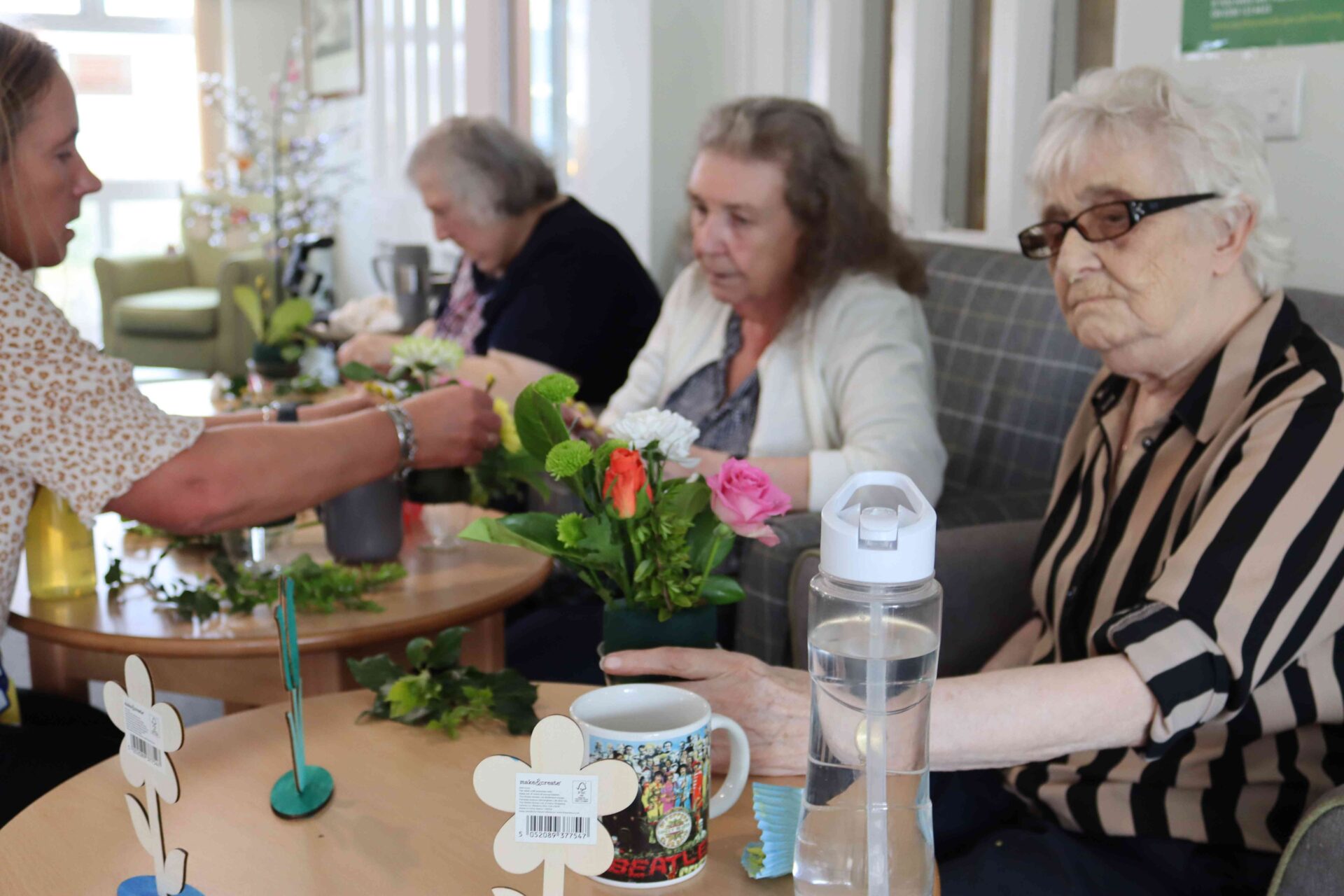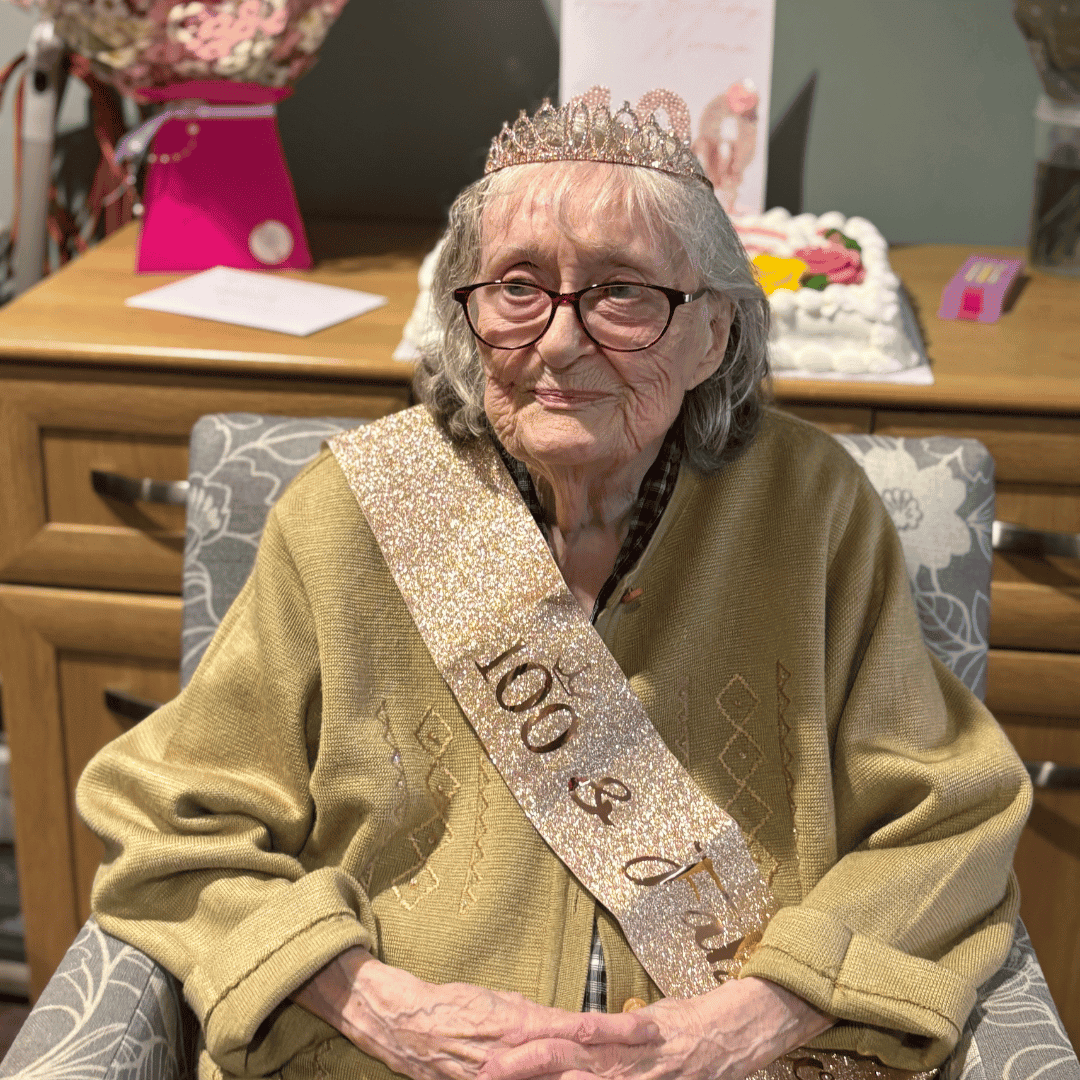13 – 19th May 2024
With only 1 in 3 people who have dementia getting a diagnosis, the purpose of this campaign is to raise awareness to bring the UK together so that we can all help and take action to ensure that diagnosis rates are improved. This awareness week is organised by the Alzheimer’s Society because a diagnosis is extremely important so that the people in need can gain access to all the care, support, and treatments that they need.
What is dementia?
Dementia is the term used for a specific group of symptoms linked to impairing your thinking abilities. There are many different forms, and all types of dementia progress and worsen over time. It can be caused by a variety of different diseases when these diseases damage the nerve cells in the brain. The type of dementia that a person has depends on the type of disease that affected the brain, as each disease effects the brain differently. While there are many different types, a person may also have “mixed dementia” where they can experience the symptoms of more than one type.
The main four types include, Alzheimer’s disease, Vascular dementia, dementia with Lewy bodies (DLB) and Frontotemporal dementia (FTD):
- Alzheimer’s disease affects mainly memory problems, thinking, language or perception.
- Vascular dementia includes problems with organisation and making decisions.
- DLB is caused by Lewy body disease and effects a persons sleep quality, movement, ability to focus and can cause delusions.
- FTD, otherwise known as Pick’s disease, changes a person’s behaviour and can cause language difficulties.
Normal signs of ageing
The main symptom is memory problems, however, being forgetful happens to everyone at times and is generally linked to age. This may be frustrating to deal with, however, it shows us that having difficulty remembering things does not always mean that it is dementia. It is important to differentiate the differences between getting older and dementia.
- Difficulty taking in new information as quickly as you’re used to.
- Struggling with technology.
- Taking slightly longer to think or make decisions.
- Forgetting the occasional event.
Symptoms
Dementia, however, is not a normal part of getting older, which is why a diagnosis is so important. There are many different symptoms and behaviours that have been linked to dementia, however it all depends on how long you have had these symptoms and how much they are affecting your daily routine. Here are some examples of symptoms, however for any serious concerns, please contact your GP:
- Struggling to learn and retain information (for example recent events or people’s names).
- Mistaking reflections for other objects.
- Difficulty judging distances.
- Struggling to make decisions or making decisions that are careless and not thought through.
- Losing track or time or dates.
- Repetitiveness – asking the same questions again and again.
- Leaving objects in strange places.
- Struggling to complete everyday tasks that you have completed easily before (for example paying your bills).
- Poor sleep quality.
- Easily getting lost in places that you usually know your way round.
- Getting upset or angry easily.
- Low mental well-being.
- Quickly losing interest in hobbies or activities that you previously enjoyed.
- Out of the blue change in behaviour and personality.
- Restlessness or need to walk around.
Who’s more likely to get dementia?
Dementia mainly affects those who are above the age of 65 and there are currently over 900,000 people within the UK living with it. While age is not the cause, a person’s likelihood of it developing does increase with age. Studies show that 1 in 14 people over the age of 65 have developed dementia, that statistic rises to 1 in 6 in those aged over 80. While you are more likely to develop dementia with age, there are 42,000 people who live in the UK who are under the age of 65 living with dementia.
There are certain health issues that can also increases your chances of developing, these include:
- Poor diet
- Overusing alcohol
- Smoking
- Hearing loss
- High blood pressure
- Lack of physical activity
What to do if you suspect you, your service user or your loved one has dementia:
If you suspect that someone you know has dementia, it is always important to acknowledge the common symptoms and make a comparison. When doing this however, you also must ensure that they aren’t just normal signs of ageing. If you are still worried, contact your GP or encourage your loved one or service user to contact their GP.
If someone you know has dementia, it is important for to treat them normally and not as if they are defined by their diagnosis. Continuing to give them their sense of identity can greatly help improve their mental well-being and help take away from the stigma that dementia has.
While a person’s behaviour and personality may change as the dementia progresses, it is important to focus on the positive side and not get frustrated by these changes that they are experiencing. It is important to try and encourage them to try and remain sociable and continue and hobbies that they enjoy.








